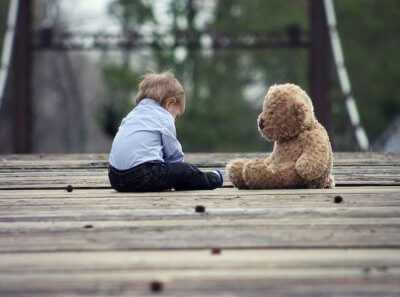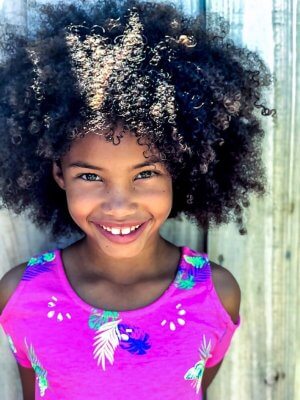Kids and Emotions – What’s Normal and How Can You Help?

photo by Pixabay for Pexels
by Liz Szalai
As babies grow up, their ability to express emotions develops, never made more clear than by the so-called ‘terrible twos’. When it comes to kids and emotions, how can you as a parent best help? And what is normal emotional development for each age range?
Kids and emotions – why it matters
“Social-emotional learning” (SEL) is the process through which, as explained by America’s National Centre on Safe Supportive Learning Environments, children–
“…acquire the knowledge, attitudes, and skills they need to recognise and manage their emotions, feel and show empathy toward others, establish positive relationships, and make responsible decisions.”
SEL is fundamental to a child’s physical and mental health, academic achievement, and ethical development. It helps your children grow up to become a confident, skilled, and healthy adult.
Babies and emotions
Despite once held beliefs that babies didn’t have emotions yet, modern research shows that babies display various emotions from infancy. It found that babies express their enjoyment from as little as six weeks with a smile, and enjoy social situations starting around 16 weeks. Babies were also found to have a specific facial expression in reaction to physical pain (e.g. receiving vaccines) and a very defined face for disgust when they taste something they don’t like.
Of course at this age it’s not the baby who must regulate their emotions, but the parents. As parents we must regulate our own behaviours and emotions to ensure our child feels safe and loved.
From baby to toddler
As babies grow into toddlers, not only do their vocabulary and independence increase, but also the intensity of their emotions. They can now define some emotions, and verbalise them.
This doesn’t mean that they can regulate them or that they should be expected to. Toddlers sometimes experience extreme intensity of emotions without the neurological readiness to control them.
Tantrums and meltdowns are actually an important part of their development. They are not something toddlers should be punished for, however hard it might feel to handle them as parents.
How your emotions affect your young child
There’s a biological factor with temperament, but the coping skills children learn from us will be the coping skills they start with.
A study on marital conflict found that marital conflict was found to have a direct effect on an infant or toddler’s emotions. It also has an indirect effect. If parents are distressed, their response to their child’s behaviour is influenced by their personal conflict. Toddlers expressed more negative emotions or became more withdrawn.
The study emphasised the importance of looking after your relationship, using appropriate communication and, if necessary, seeking intervention.
This doesn’t mean we can never lose our cool in front of the kids, which is unrealistic. But it is important what patterns we show them about resolving conflicts with our partner or family members.
Responsive parenting – is it the answer?
 By responsive parenting, scientists mean the parents create a warm and supportive, nurturing environment. They consistently respond to the child’s signals from infancy, creating a firm foundation for development.
By responsive parenting, scientists mean the parents create a warm and supportive, nurturing environment. They consistently respond to the child’s signals from infancy, creating a firm foundation for development.
A study looked at social, communication and independent problem-solving skills in infants. It found that babies whose mothers displayed responsive behaviour showed increased social-emotional and cognitive skills. They also found that infants growing up in a responsive environment respond to adversity better, such as to dealing with new situations.
How to help when it comes to kids and emotions
So how can you help your kids with emotional outbursts and temper tantrums?
1. Be calm and present.
According to UK charity Family Lives, staying calm during your child’s tantrum is the key to deal with it. Your calm presence will help them to get their balance back, and speaking quietly and slowly can help your toddler to handle their emotions.
Find this a constant challenge? Self-reflection and looking out for the triggers that make us lose our temper can be helpful. Hunger, overstimulation, tiredness, and stress from other sources can make dealing with tantrums and staying calm harder. If you feel overwhelmed, note that Family Lives also offers a free helpline.
2. Accept and validate feelings.
Always accept and validate the feeling (not the behaviour). Helping to name the emotion your child feels can help them in developing emotion regulation.
“I can see you feel angry because you didn’t get to play with the car right away” is helpful. “Stop having a temper tantrum”, or “Stop being selfish“, less so.
3. Draw boundaries to behaviour.
Accepting emotions doesn’t mean you cannot draw boundaries to the behaviour. “I see you feel angry, but it is not acceptable to then hit your sister.”
4. Do not label and generalise.
Don’t label them and generalise the situation, focus on the present. So, “Why can you never just share toys with your sister” labels a child as always selfish. “I can see you are finding it difficult for to share today” is about right now, but allows change for the future.
5. Reason with them when they are calm.
Imagine the tantrum as a tornado. You cannot do anything else but try to reassure them, and make sure everyone is safe. When the storm is gone, in a calm moment, you can reason with them.
It of course matters that you are calm, too, as the parent.
What about when my children get older?
When children reach around seven years of age, or for some eight, they have greater knowledge of identifying their emotions and controlling them. Responsive parenting methods still work well. But with bigger kids, we can talk more about emotions, including our own, which can help with finding solutions.
Overwhelmed with parenting? Or worry your kid has behavioural or emotional issues and needs support? We connect you to a team of some of the UK’s best child therapists, family therapists, and parenting counsellors. Or use our sister site to find UK-wide registered therapists who can help.
 Liz Szalai is a freelance writer and mum with a Master’s degree in psychology. She worked with children and young people for more than 15 years, including teaching students with learning difficulties. See more about her at @lizszalaiwriter.
Liz Szalai is a freelance writer and mum with a Master’s degree in psychology. She worked with children and young people for more than 15 years, including teaching students with learning difficulties. See more about her at @lizszalaiwriter.




